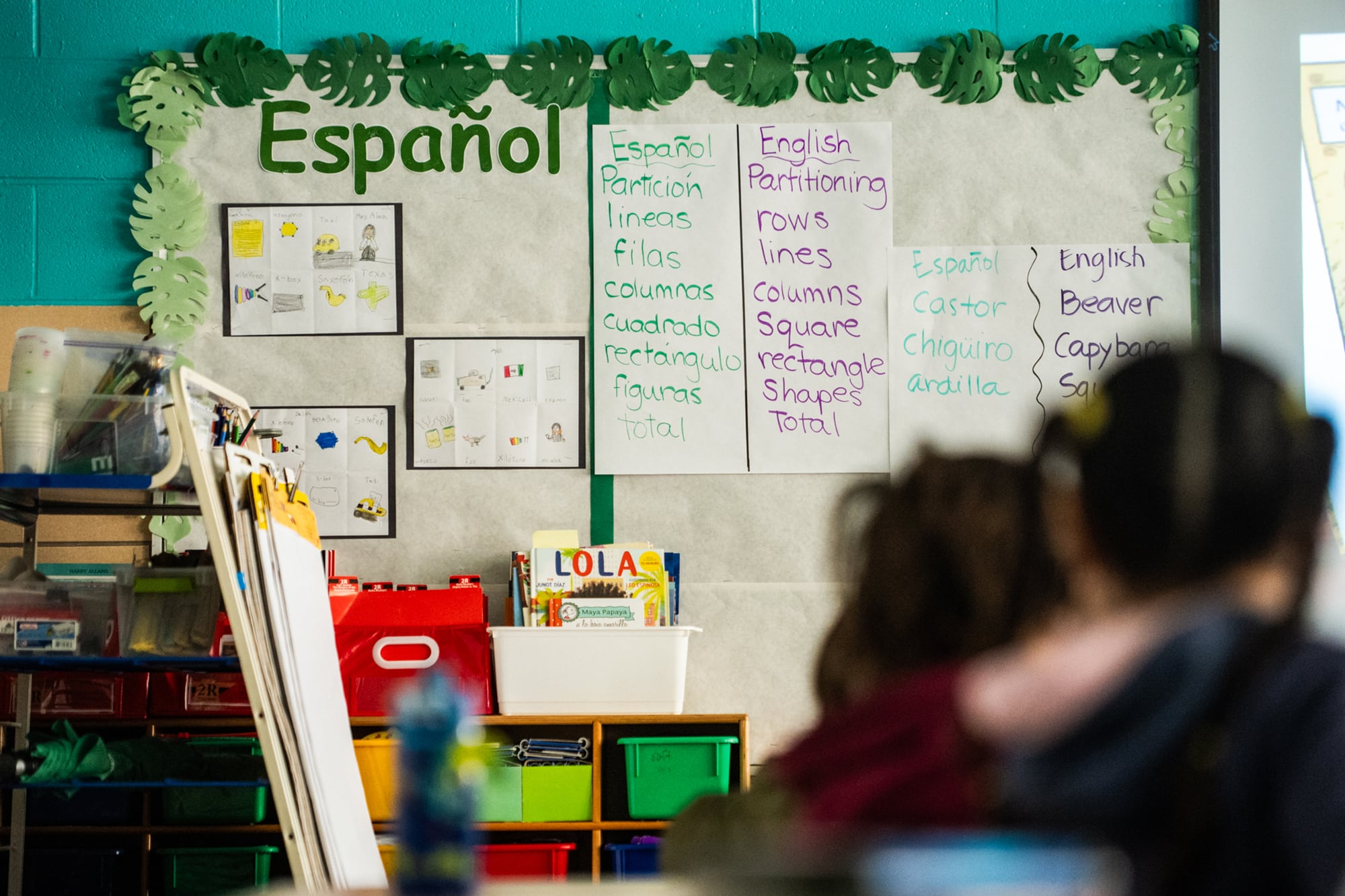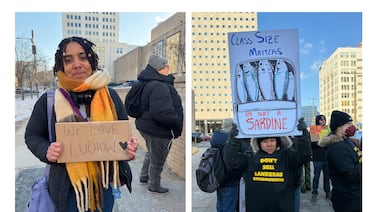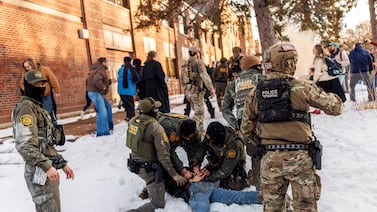Sign up for Chalkbeat Chicago’s free daily newsletter to keep up with the latest news on Chicago Public Schools.
Last month, the day after a Chicago student’s father was detained by federal immigration agents, the girl’s aunt drove to her school with short-term guardianship papers in hand.
The girl’s father had worried about what would happen to his daughter if he was picked up by federal agents, according to the school’s principal, who requested anonymity because she was not authorized to speak with the press and did not want to make her school a target for federal law enforcement.
Like a growing number of immigrant parents in Chicago, he had the papers drawn up as a precaution.
Those documents gave the aunt temporary custody of the student and allowed the school to release her to the aunt during dismissal that day, the principal said.
The principal, whose school is located in a neighborhood with a high percentage of immigrant families, also said the guardianship papers allowed for a smoother process to transfer the child to a different school near the aunt’s home.
“The dad did what he was supposed to do,” she said.
As federal immigration enforcement in Chicago has intensified and resulted in more than 3,300 arrests over the past several months, parents in the city’s immigrant communities have grappled with the fear of what happens to their children if they are detained.
Chicago Public Schools has encouraged parents to set up caretaking plans for their children in their absence. Several community-based organizations and attorneys advise parents to set up short-term guardianships, which transfer temporary custody of their children to a trusted person after a specific event, such as federal detention.
In a statement, CPS spokesperson Sylvia Barragan said the sudden loss of parents is “highly unique and school and District leaders respond to each situation on a case-by-case basis in an effort to provide as much support as possible for impacted students and families.”
At minimum, families should identify someone they trust with their children in their absence, said Rebekah Rashidfarokhi, director of guardianship and immigration programs for children at Chicago Volunteer Legal Services, a legal aid group for low-income families.
“I always tell people, it’s more important and necessary that they talk to people about what their plan is,” she said.
CPS has long required families to submit emergency contact information in case, for example, parents don’t show up for pickup.
Since President Donald Trump took office for the second time and stepped up immigration enforcement, CPS began encouraging parents to create “family plans” that outline child care plans in their absence and give a trusted person access to important documents.
Typically, if no one comes to pick up a child from school, staff will call emergency contacts. Staff may also check enrollment paperwork or short-term guardianship papers to find others who may have the authority to “make decisions for the student,” a CPS spokesperson said.
If the school cannot get in touch with emergency contacts or people listed on other paperwork, principals are instructed to contact the CPS Student Safety Center, a 24/7 office that handles safety issues or emergencies, the district said.
Asked about situations where a child is in someone else’s care without an official plan in place, CPS referred Chalkbeat to Illinois State Board of Education guidance, which says districts “cannot require adult caretakers or relatives with whom a child lives to establish legal guardianship as a condition for gaining access to the district’s schools” but can require “reasonable reassurance” that the new caretaker will accept responsibility of the child. This can be done through a letter or affidavit, the guidance said.
The principal of the school where the child’s father was recently detained has experienced what happens when there’s no written record of who should be caring for a child. A few years ago, she said, an unaccompanied child from Central America arrived at the principal’s school with an aunt who lives nearby. At first, school staff wasn’t sure whether they could let the aunt make decisions for the student.
The staff eventually called the child’s mother, who was in the child’s home country and confirmed that she sent her child to live with the aunt, the principal said.
Staff wanted to be careful, but they also felt uncomfortable asking for additional legal custody paperwork, she noted. CPS policy and state guidance say schools shouldn’t ask for immigration status or related documents.
“What do you do? You gotta help this family,” the principal said.
Some parents worry that without a custody plan in place, child welfare officials will step in and place their children into foster care. That’s not necessarily true, according to the Illinois Department of Children and Family Services.
DCFS gets involved only “if there is no safe caregiver available or if there are credible concerns of abuse or neglect,” said Deborah Lopez, associate deputy director of communications for DCFS. As of last month, the agency had not placed any children in foster care whose guardians were detained by federal immigration agents, Lopez said.
Even informal child care plans “should be followed,” and DCFS “does not need to be notified about the arrangement,” the agency says. The agency considers it appropriate for the child to stay with a trusted relative, family friend, or neighbor so long as the child is safe, Lopez said.
If there’s no caregiver and no care plan in place, DCFS can be contacted through the Child Abuse and Neglect Hotline, at 1-800-252-2873, Lopez said.
Still, attorneys, organizations, and DCFS have encouraged families to establish short-term guardianships, which are free to create and give a trusted person temporary custody of their children after a “triggering event,” such as being arrested or having health issues.
Rashidfarokhi, the attorney from Chicago Volunteer Legal Services, said she would rarely receive a request for help with short-term guardianships, regardless of who was in the White House. But requests have skyrocketed this year.
“Demand for these has increased exponentially, dramatically, to the point where I’m getting many requests a day,” Rashidforakhi said.
The agreements can last for up to a year unless otherwise specified, she said.
The principal at the school where the girl’s father was detained said soon after the federal government announced its Chicago deportation campaign — known as Operation Midway Blitz — in September, at least 150 families called or emailed the school to share additional emergency contacts or share temporary custody plans.
Reema Amin is a reporter covering Chicago Public Schools. Contact Reema at ramin@chalkbeat.org.






